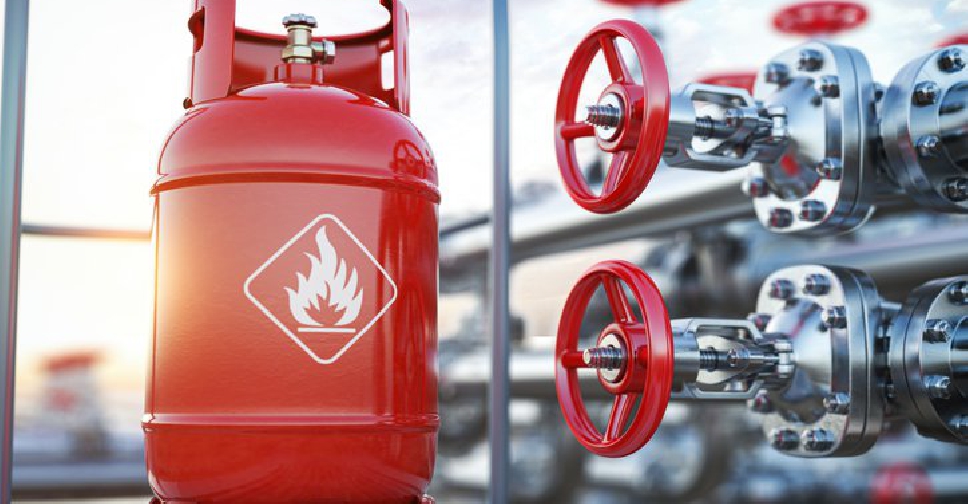
A new directive has been issued in Dubai to regulate the trading of Liquefied Petroleum Gas (LPG), in order to protect the environment and society.
That's according to a directive issued by H.H. Sheikh Ahmed bin Saeed Al Maktoum, Chairman of Dubai Supreme Council of Energy (DSCE).
It covers the transportation, storage, and distribution of LPG, whether through cylinders or transport tanks.
The Directive stipulates that it is prohibited to distribute LPG cylinders in Dubai unless they are filled in the approved LPG factories in the Emirate.
This ensures compliance with all standards and regulations issued by local departments.
The DSCE stipulated the necessity of obtaining its authorisation to issue the permit to complete all approvals and requirements from government authorities in the Emirate, according to their respective requirements.
The DSCE will coordinate with government authorities to conduct joint inspection campaigns to ensure that workers in this sector follow the Directive and apply the highest safety and security standards.
"Through this Directive, we outline the regulatory framework, strategies and regulations for LPG trading in Dubai, in accordance with the highest international standards in this area," said Saeed Mohammed Al Tayer, Vice Chairman of the DSCE.
.@HHAhmedBinSaeed issues Directive No. 3 of 2021 on the regulation of Liquefied Petroleum Gas (LPG) trading, in order to protect the environment and society, by implementing the highest standards of safety and security.https://t.co/ttMmIwTXAh pic.twitter.com/ZvWe3RvtbD
— Dubai Media Office (@DXBMediaOffice) May 15, 2021
The DSCE is the sole entity in Dubai to carry out all tasks and powers according to Federal Law No. (14) of 2017 as well as the decisions issued thereby, in particular, to issue permits for trading in petroleum products in Dubai and to determine the petroleum materials that may be traded, the activities associated therewith, and the control and inspection of the facilities authorised to deal in this regard.
This is based on the Federal Law No. (14) of 2017 regarding the regulation of petroleum products trading and Decree No. 8 of 2020 regarding the appointing of the competent entity in the Emirate of Dubai responsible for implementing Federal Law No. (14) of 2017 for petroleum products trading.
The Directive also states that issue or renewal of licenses to distribute LPG and its derivatives in Dubai requires written approval from the Dubai Supreme Council of Energy (DSCE).
"This confirms the distributor has a valid contract showing commitment to safety and security criteria, with the approved bottling plants in the Emirate," said HE Ahmed Buti Al Muhairbi, Secretary-General of the DSCE and Chairman of the Dubai Regulatory Committee for Petroleum Products.


 Nasdaq set to confirm bear market as Trump tariffs trigger recession fears
Nasdaq set to confirm bear market as Trump tariffs trigger recession fears
 Dana Gas and Crescent Petroleum exceed 500M boe in Khor Mor field
Dana Gas and Crescent Petroleum exceed 500M boe in Khor Mor field
 China to impose tariffs of 34% on all US goods
China to impose tariffs of 34% on all US goods
 Shares bruised, dollar crumbles as Trump tariffs stir recession fears
Shares bruised, dollar crumbles as Trump tariffs stir recession fears
 Wall Street futures sink as tariffs fuel recession fears
Wall Street futures sink as tariffs fuel recession fears




